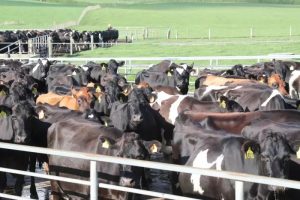
Reckitt Benckiser Group-owned Mead Johnson & Company LLC and Mead Johnson Nutrition Company are facing a potential jury trial after a mother from the US state of Georgia filed a court case alleging that its premature infant son developed a serious illness and died as a result of being fed Enfamil Premature formula whilst being looked after at a hospital’s neonatal intensive care unit.
The complaint alleges that Mead Johnson & Company promoted the use of their infant cow’s milk-based products despite knowing of the health risks posed to preterm infants, and failed to warn the public and the medical community of the risk of necrotizing enterocolitis (NEC) – a serious inflammation of the gut and intestines. The manufacturer is sued on six counts – defective design, negligence, failure to warn, punitive damages, pre-death injury and pain and suffering, and wrongful death. The action is for damages exceeding US$75,000.
“This action arises out of the catastrophic and preventable death of a newborn baby who died due to a horrific and deadly disease caused and/or substantially contributed to by cow’s-milk-based infant formula and/or fortifier,” the complaint reads, with allegations encompassing the defendants’ conduct in relation to ‘the design, development, manufacture, testing, packing, promoting, marketing, distribution, labeling, failure to warn, and/or sale of [their] cow’s milk-based products’.
Failing to warn users
The lawsuit has been brought forward by Shennice Joseph, who alleges that her prematurely born baby developed NEC ‘after being fed an Enfamil Cow’s Milk-Based Product’ whilst at a neonatal intensive care unit at Children’s Healthcare of Atlanta, Egleston Hospital, where he was transferred after birth. Around two months later, the infant was diagnosed with NEC and was treated with antibiotics, eventually undergoing surgeries, including for bowel resection. After the procedures, the baby’s health progressively worsened, and he died of renal failure due to short gut syndrome. The document states that the parents had been ‘unaware’ that Mead Johnson’s product ‘caused or substantially contributed’ to the baby’s death.
The plaintiff’s complaint quotes a body of evidence including scientific studies that analyze the risk of NEC in preterm infants fed cow’s milk-based products rather than human breast milk. It is then alleged that the defendants “began heavily promoting ‘human milk fortifiers’, a name which misleadingly suggests that the product is derived from human milk, instead of being derived from cow’s milk’ and that the defendants ‘have designed competing, systematic, powerful and misleading marketing campaigns” to promote the safety of cow’s milk-based products whilst failing to ‘warn the users, the parents, or the medical providers and staff’ of the risks associated with NEC, or to provide guidance.
Mead Johnson & Company are also accused of ‘inadequate labeling that failed to warn of the risks of use of products with preterm infants’, the complaint stating that the instructions had been ‘severely inadequate, vague, confusing, and provide a false sense of security’. The plaintiff also goes as far as to allege that the Company, ‘through its knowledge, review, and survey of the scientific literature…, knew that the use of cow’s milk-based products with preterm infants could cause severe injury, including but not limited to NEC and death’.
Reckitt Benckiser Group, the parent company of Mead Johnson Nutrition Company, was contacted for comment but declined to provide one.
Mead Johnson is currently facing several lawsuits for failing to disclose the risks of NEC associated with the use of cow’s milk products. For example, in November 2022, a Baltimore woman filed a lawsuit against the makers of Enfamil over NEC injury of her newborn child. Meanwhile, similar cases – including those brought forward against other manufacturers – are being consolidated into class actions. As of January 2023, US law firm Miller & Zois reported that its attorneys were handling NEC lawsuits in all 50 states.




















